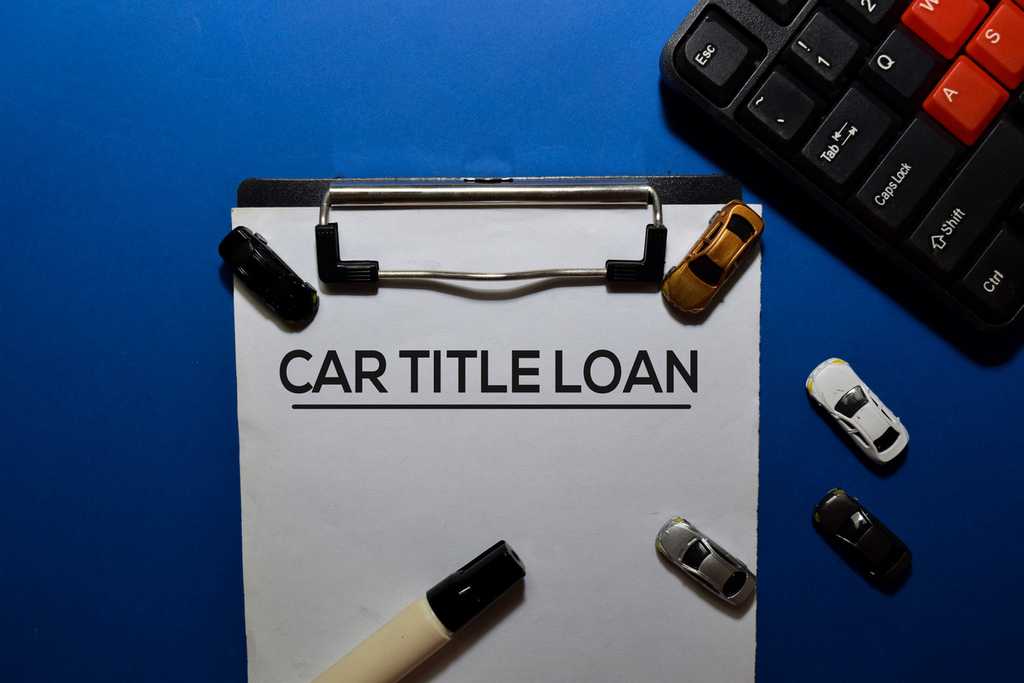A car title loan is a short-term loan that a car owner can take out using their car as collateral. Borrowers can use this money to pay for an unexpected bill or other expense that they are unable to pay for out of pocket. However, a car title loan is a short-term loan which must typically be repaid within 30 days. Read on to learn more about the ins and outs of car title loans to determine whether it’s a good option for you.
What is a car title loan?
A car title loan is similar to a home equity loan where you can get cash out of your home’s equity. But a car title loan gives you cash in exchange for a portion of your car’s worth instead. It can be a quick way to get money when you need it, but it can also be risky because the lender may repossess your car if you default on paying back the loan.
Cars aren’t the only vehicles eligible for car title loans. You can also take out this type of loan against a motorcycle, recreational vehicle or boat.
How do car title loans work?
In order to get a title loan, you must typically own your car outright. While some lenders will give you a car title loan if your main car loan is close to being paid off, they are harder to find. But if you paid cash for your car or your car loan is paid in full, you should be able to get a car title loan.
With this type of loan, the lender will give you a lump sum of cash against the value of your vehicle. You will then need to repay the loan either in a lump sum or in installments by a certain date as specified by the lender. In general, you can choose to pay the loan off in full within a month, or pay it in installments over several months (typically 3 to 6 months).
If you fail to pay the loan back by the agreed-upon date, the lender may roll it over to a new cycle with additional fees, which can make it hard to get on top of the payments. Alternatively, the lender may seize your car if you are unable to pay back the loan. This can add more complications to your situation, as you may not be able to get to work without a car and might therefore be unable to make any money to pay back your debt or purchase a new car.
Car title loans pros and cons
Just like with any type of loan, a car title loan has its pros and cons. Before deciding whether this type of loan is right for you, learn more about its benefits and drawbacks.
Pros of car title loans
- Lenders generally don’t check credit for a car title loan, making them accessible to people with poor credit scores.
- The approval process is fairly quick, which means funds are available right away.
Cons of car title loans
- Car title loans tend to have high interest rates, which means you will pay a lot to borrow money against your car.
- A car title loan is a short-term loan, which means you will not have a lot of time to repay the loan.
- Some borrowers may find themselves in a cycle of debt where they have to take out a new loan to pay off their car title loan, and that can be a hard cycle to escape.
- Failure to repay a car title loan could result in the lender seizing your car, leaving you without a means of transportation.
How much can you borrow with a title loan?
The exact limit can vary from lender to lender, but in general you should be able to borrow between 25% and 50% of your car’s value when taking out a car title loan. But if the car is still under financing from when you first purchased it, you’ll be unlikely to find a lender who will approve you for a car title loan.
When should you get a title loan?
A car title loan can be a good option for borrowers who need a lump sum of cash quickly. Because there is no credit check, you can typically get this type of loan approved fast, which means the funds will be available to you sooner. If you are faced with an unexpected expense, such as a large medical bill, a car title loan can provide you with the funds you need to pay the bill.
How much does a title loan cost?
The main cost of a car title loan comes from interest. This type of loan generally has a very high interest rate of around 25% per month. Since the typical loan term is between 15 and 30 days, a borrower who pays the loan back in full by the end of the term will pay 25% in interest. For example, a loan of $1,000 with a 30-day term and a 25% interest rate would cost $1,250 if paid off in full at the end of the 30 days.
If you’re not able to pay the loan off by the end of the term, the lender may offer to roll it over into a new loan. That would mean you would pay the $250 interest that first month, and then you would owe the loan balance plus interest at the end of the second 30-day loan term. If you are able to pay it off then (and the interest rate remains the same), you’d pay $1,250 the second month and get your car title back. In this scenario, you would have paid $500 in total interest to borrow the money.
Unfortunately, some borrowers find themselves rolling the loan over each month due to an inability to pay it off. With that 25% interest rate per month, that would mean a 300% annual percentage rate, or APR.
The interest rate is also only one type of cost when it comes to getting a car title loan. The lender will likely also have other associated fees which you’d need to pay in order to avoid defaulting on the loan. Unfortunately, if you are unable to pay back the loan and end up defaulting, the lender will likely repossess your car in order to recoup their lost money.
Does a title loan affect my credit score?
Since lenders usually don’t check your credit as part of a car title loan application, you won’t have to worry about your credit being damaged by a hard credit inquiry. This type of inquiry can knock several points off your credit score, so you won’t need to worry about that being an issue when applying for this type of loan.
However, if you’re unable to repay the loan and the lender repossesses your car, it will be reported to the major credit bureaus, which can have a detrimental effect on your credit score. That’s why it’s important to only take out this type of loan if you feel confident you can repay it.
Alternatives to car title loans
There are several alternatives to car title loans for borrowers who need money quickly. These include payday alternative loans, personal loans, credit cards, and loans from friends or family.
Payday alternative loans
If you are a member of a federal credit union, a payday alternative loan may be an option when you need a lump sum of money fast. This type of loan is regulated by the National Credit Union Administration (NCUA) and is designed to provide the borrower with a small amount of money when they need it without paying very high interest rates and fees like with traditional payday loans.
To qualify for a payday alternative loan, you must have been a member of your federal credit union for a month or more. You can generally borrow between $200 and $1,000, and the maximum APR of this type of loan is 28% — much lower than the 300% typically seen with a car title loan. A payday alternative loan’s term is usually between 1 and 6 months and rollovers aren’t allowed to prevent borrowers from getting into a cycle of debt. Payments are made in monthly installments, and borrowers can take up to three payday alternative loans within a 6-month period.
Like car title loans, payday alternative loans usually don't have a credit check requirement, making them accessible to borrowers with poor credit. However, borrowers will have to show proof of income when they apply for the loan to show that they have the income to repay the loan by the end of the term.
Personal loans
A personal loan is an unsecured loan offered by most financial institutions, including banks, credit unions, and online lenders. Because this type of loan is unsecured (meaning you don’t have collateral against the loan, like a car or your house), it tends to have a higher interest rate than a secured loan would. The APR for a personal loan is typically 36% or lower, which is a lot less than the 300% APR that typically accompanies a car title loan. Borrowers who have good credit scores will likely qualify for a much lower APR when taking out a personal loan.
Personal loans also tend to have longer loan terms than car title loans. The average personal loan term is between 2 and 7 years, which means the monthly installments are much more manageable and borrowers are more likely to be able to pay them off.
Credit cards
A credit card can be used in place of a car title loan to pay for a sudden or unexpected bill. When you apply for a credit card, the financial institution will set a credit limit. If you have a good credit score, that limit can be quite high. If you repay your balance within 30 days, you will not need to pay interest.
However, if you are not able to repay the credit card balance, the amount will start accruing interest, which can add up quickly. However, credit cards tend to have much lower interest rates than car title loans, so there’s less risk of getting into a cycle of debt that’s impossible to repay.
Loans from friends or family
If your credit is too poor to qualify you for a personal loan or a credit card, and a payday alternative loan is not an option for you, you may want to look toward your inner circle to see if there is anyone who would be willing to lend you the money you need temporarily.
Since a loan from a close friend or member of your family is less likely to come with a huge interest rate, you are more likely to be able to pay it back. However, borrowing money from loved ones can cause rifts, especially if you find yourself unable to pay back the money you borrowed. Before borrowing money from a loved one, it’s important to agree on a repayment plan and stick to it to avoid damaging the relationship.
A car title loan can provide a lump sum of cash quickly and without a credit check, but if you can’t pay it back within the agreed-upon loan term it can quickly spiral you into inescapable debt. It’s important to research this type of loan, as well as alternative loan types, before signing away the title to your car.

